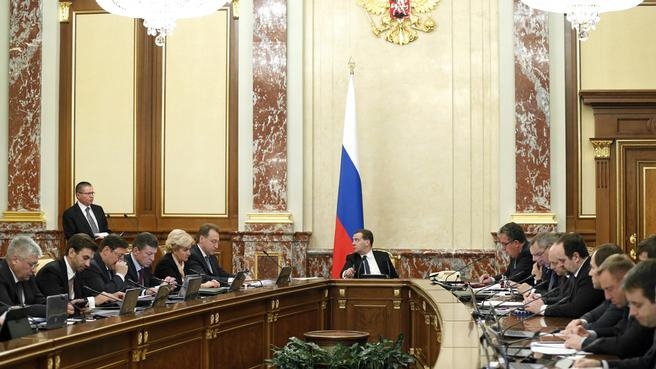Vnesheconombank’s scope of authority, the use of GMOs and the development of biomedical technology.
From Dmitry Medvedev’s opening remarks:
Today we will discuss amendments to the Law on the Bank for Development that expand the purview of Vnesheconombank (VEB), enabling it to provide financial guarantees to exporters of industrial and agricultural products and provide assistance to Russian investors on international markets. We expect these amendments to help put in place more simple, prompt and effective procedures for the approval and launch of new investment projects abroad.
Furthermore, the plan is to expand VEB’s activity in financing the supply of goods manufactured abroad under international cooperation programmes, including on the territory of the Eurasian Economic Union. This refers only to goods where the share of Russian components is no less than 30 percent of their production cost. This should help our manufacturers better develop new markets and gain access to new technology.
The bank has considered dozens of applications for the implementation of foreign investment projects but many of them were turned down because they did not correspond to VEB’s goals.
State support on foreign markets is common international practice, and leading development institutions in other states are involved in promoting the goods and services of national manufacturers and providers on world markets. These include Eximbank in the United States, a special agent bank of the French government, the German state bank KfW and a number of others. Therefore, we should bring our legislation in line with international practice.
The bill under consideration today is part of a package of amendments to the Law on the Bank for Development, which aims to support export. In the near future, we will also consider insurance support for the export of Russian goods and services.
We will also consider a bill that sets the rules of handling so-called bio-medical cell products, i.e., products based on human stem cells. The scope of their application is quite broad but it is not regulated by special legislation and therefore creates a legal vacuum. The bill that has been submitted establishes the rules of procedure for pre-clinical and clinical research studies, registration, production and marketing of cell products and envisions state control of their production and circulation.
<…>









